For some reason, people very rarely ask me for advice. I know, it’s weird; as a person writing a comics blog in the year 2025 A.D. because he’s otherwise unemployed, I’m obviously extremely successful, universally beloved, extremely good at basketball, and known for my love of interacting with readers in the kind of conversations that can only be spurred on by the presence of a website comments section. You’d think they’d be lining up around the block and offering me upwards of $400 for my patented life hacks, but no. Maybe they’re just too shy, or intimidated by my rugged good looks and seemingly effortless charm. Who can say?
If they did ask, though, then one of the best tips I could give for navigating an unfamiliar social situation is one that I stole from my friend Ben Gulley. If you ever find yourself at a gathering or a date with someone turns out to be a huge nerd — pretty unlikely for someone reading a comics blog in the year 2025 A.D., but it pays to be prepared — and you’re looking to break the ice, just ask them a simple question:
“What’s your favorite bad episode of Star Trek?”
This is, no joke, one of my favorite conversations to have with people, both because it really gets into what someone finds enjoyable about media that they still consider “bad” (and often veers into what crosses the line into the version of bad that’s not enjoyable), and because it’s so specific to Star Trek in a way that I don’t think would work for any other media. I mean, look: I absolutely love Star Trek. Of all the things that I’ve been passionately obsessed with in my life — pro wrestling, Dungeons & Dragons, ’60s girl group music — the only one that I’ve loved as much and for longer than Trek is comics. It was one of the few pop culture obsessions that I shared with my mom and dad, and it’s something I’ve bonded with friends over. It’s a rare piece of my pop culture DNA that has such a massive impact in the wider media landscape to make my own love of it feel like something that’s shared among the entire world rather than just a niche fandom.
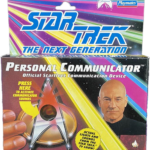
Here’s a fact about me I haven’t mentioned in a while: When I was 9, I wore a toy communicator to school one day. And like, this was not a show-accurate lapel pin. This thing was the size of my fist, at least an inch thick, and took two half-inch batteries to power the red LED lights that would flash when you pressed on it — which, in case you don’t know, is absolutely not something that those things did on the show. It was huge, and weighed my shirt down to the point where it looked like an invisible toddler was trying to climb up my torso. I knew even at the time that it was not the most fashionable choice, but I rocked that bad boy with the kind of Starfleet pride that I assure you the rest of fifth grade did not appreciate. So trust me: I am a fan.
But like… a lot of the time, it’s pretty bad, right?
Even if you’re leaving out the wider world of tie-in novels, comics, and other ephemera and just looking at the live-action stuff, even if you’re just looking at the shows — heck, even if you’re just looking at one show in particular — then pound for pound, episode for episode, there’s a lot of bad Star Trek out there. There’s usually a base line of quality there that keeps it from ever hitting the dreaded 51% mark that tips it over into being more bad than good, but it has to be pretty close. And considering the sheer numbers of just how much Trek there is out there — 80 episodes of the original run, about 175 each of Next Generation, Deep Space Nine, and Voyager, a hundred miserable hours of Enterprise, and another 200 of the current gen stuff — there are more bad episodes of Star Trek than there are good episodes of pretty much anything else.
Don’t get me wrong: that never overshadows the good stuff, which is often truly phenomenal. Over the past 60 years, Trek has produced not just some of the best science fiction that’s ever been made, but some of the best television ever made, full stop. You can pick any award-winning episode of any prestige streamium entertontent with a budget in the millions and it would be hard pressed to even hold a candle to “Chain of Command,” or “Balance of Terror,” or “A Taste of Armageddon,” or the episode of Deep Space Nine where they play baseball against the Vulcans.
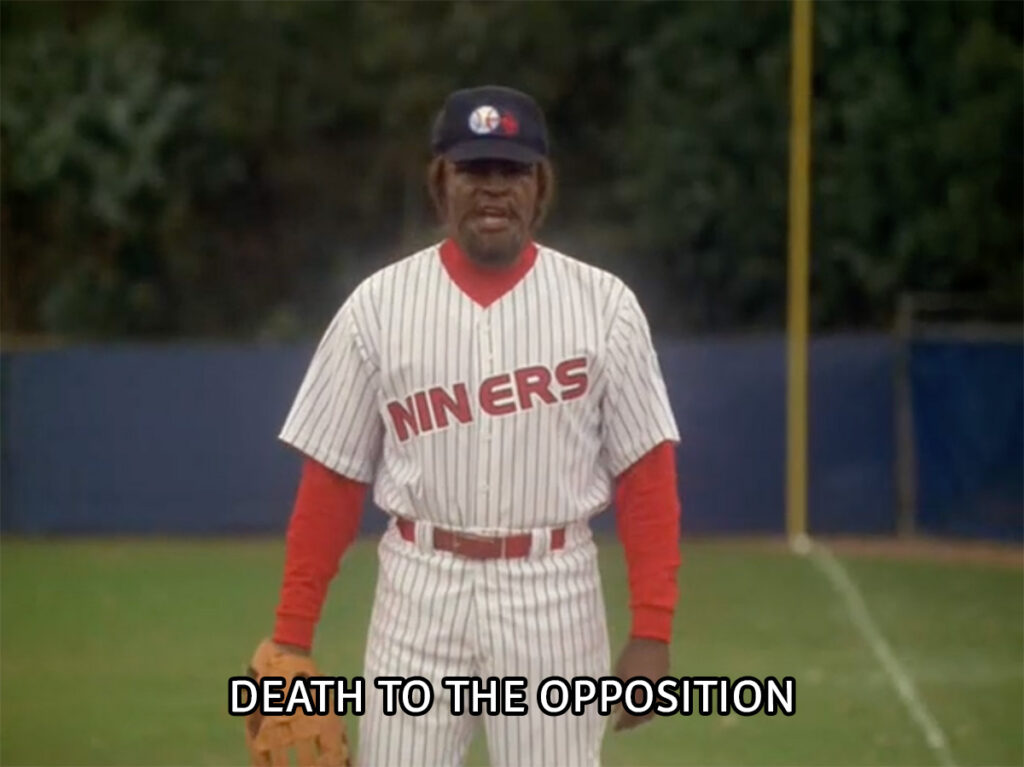
Yeah, Breaking Bad is great or whatever, but does it have David Warner in spoon-headed lizard makeup psychologically terrorizing my literal dad, Jean-Luc Picard, who then closes out the episode admitting that he broke under torture in a scene that would be unthinkable for almost any other heroic protagonist but shows an incredible vulnerability that grounds his character in humanity despite the fact that he exists in an outer space world of mid-century thought experiment morality plays? Yeah, I didn’t think so. Sounds like Breaking Bad might suck actually, I guess. I don’t know, I’ve never watched it. I have, however, watched the cast of Deep Space Nine play space Jumanji at least thirty times in my life, and I’m pretty sure that was the right choice.
But for every “Measure of a Man” with JLP’s impassioned speech about the nature of sentient life, for every “In the Pale Moonlight” with Avery Brooks delivering a sonorous monologue straight into the camera about war crimes, there’s an episode where Data learns about comedy from Joe Piscopo, or where Geordi insists that it was totally normal for him to create a holodeck RealDoll based on the woman who designed the Enterprise‘s engines and actually you’re the one being weird by bringing it up so much. For every “Yesterday’s Enterprise,” there’s that one Voyager episode where Kathryn Janeway and Tom Paris turn into lizards and make lizard babies that the rest of the crew just leaves on some planet somewhere and no one ever talks about it even though you would absolutely bring this up literally every time Tom Paris was being annoying about something, which is always.
These episodes are bad, and they’re not limited to a single era, or even a single series. If you just put on a random episode — which I truly believe is the best way to experience Star Trek so as to recreate what it was like to get home from school and just watch whatever happened to be in syndication at the time — you’re just as likely to hit one of those as you are to get an absolute, genre-defining banger. Almost every series has at least its fair share of trash thrown in there. Enterprise, in fact, has not just its own share, but also got most of DS9‘s somehow. The only series that managed to get through its entire run with 50 straight all-killer, no-filler genuinely fantastic episodes is Lower Decks, and that show expects you to have already watched all the bad ones, almost to the point of requiring it.
The thing is, even when Star Trek is objectively and undeniably bad, it’s usually in a way that’s fascinating.
There are certainly episodes that are just fully, unambiguously bad — there’s a truly shocking amount of people experiencing nonconsensual space pregnancy in Trek, along with other episodes that remind you that it’s largely a show made by huge weirdo perverts — but that kind of bad is blessedly few and far between even in the worst years of the franchise. It’s much more likely that you’ll wind up watching something that’s either genuinely good or flawed in a way that still makes for a compelling hour of television. Maybe it’s rooted in an idea that should be awesome but just falls flat, like the Enterprise encountering a full Addams Family-ass haunted house just floating in space. Maybe the point that it’s trying to make is either so blatantly on the nose that it feels like Sunday school, or weirdly obscured by the process of getting it past Rick Berman, like the episode that tries to make a point about homophobia by having Riker introduce heterosexuality to a planet, which somehow looped back around to being relevant on gender issues 30 years later. Maybe it has Dr. Pulaski in it. These are all interesting flaws on their own, but they’re also interesting in their variety. When most TV shows are bad, it’s usually for the same reason every time. With Star Trek, there’s a seemingly infinite number of ways the show can boldly suck in ways no one has sucked before.
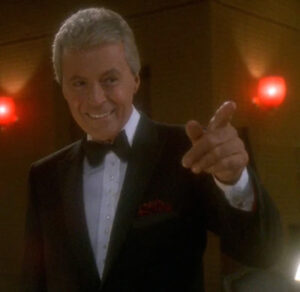
That’s one of the things that really makes it unique, and one of the reasons that talking about your favorite bad episode can make for such a fun conversation. There’s always something in there worth talking about. Bring up “Bread and Circuses,” and you can get into the way Trek embraces silliness in the name of its big moral metaphors, and how obviously so much of the original series was dictated by whatever sets they had laying around on the Paramount lot that week. Talk about the later episodes of DS9, and you get into how a show about whether the horrors of war and the lingering cultural scars of occupation and genocide can grind down even the idealism and morality of a post-scarcity socialist utopia inexplicably winds up making a holographic Rat Pack-era lounge singer who talks like Benny from Fallout: New Vegas the fourth most important character of its last two seasons.
Seriously, he gets a full musical number in the finale. The last season of DS9 is a dang trip, y’all. Anyway.
It’s tempting to say that Trek‘s most enjoyable dips into the trash pile are the result of its reach exceeding its grasp, with the lofty allegories of mid-century sci-fi running up against the harsh realities of a TV budget, but a lot of the time, the episodes that result from that are pretty good. “A Piece of the Action” is an all-time classic, and it’s an episode rooted in the idea that an entire planetary civilization would base itself on the mob bosses of 1920s Chicago, a premise that is truly and hilariously silly. And yet, it works, in a way that other episodes with similar premises just don’t. A planet where the entire society is based on Nazi Germany because THE WORST HISTORIAN WHO EVER LIVED, I GUESS decided that it would be totally chill and cool to be Nazis if you just avoided doing all the Nazi stuff, for example, or a planet that is literally exactly like Earth except that the Communist Chinese won a nuclear war and turned all the (white, of course) Americans into “savages” who worship the Pledge of Allegiance but don’t actually know what the words mean. On paper, those should be pretty similar ideas to build an hour of television around, and considering that they aired in a single three-month stretch of 1968, they should’ve been executed with pretty similar results, but one of them ends up being way better than the others.
Or at least, I think it does, and that there’s a distinct difference between “A Piece of the Action” and “Patterns of Force” or “The Omega Glory” — and God almighty do I love those proper-ass 1960s sci-fi script titles. If, however, Kirk bamboozling a bunch of alien gangsters by doing card-game improv crosses the line from “goofy but great” into “goofy and bad,” I think that’s an interesting conversation. How is that different from the episodes you like? How is it different from the episodes that are bad but not fun? There’s a lot to dig into about personal taste and how you encountered the series, what your relationship might be to “bad” media, and how bad something it can be until it stops being enjoyable. Finding out where that tipping point lies is something that’s always really fascinating, especially if you’re the kind of person who’s been thinking very critically about media as your day job for the past 20 years. If you’re going to engage with anything , after all, then you’re inevitably going to hit something that’s bad, and finding the value that exists in spite of those flaws is necessary for enjoying things. If you don’t want to do that, well, enjoy Carly Rae Jepsen’s critically acclaimed 2015 album “E•Mo•Tion,” because that’s the only truly perfect piece of art our species has ever produced.
It’s a fun thing to talk about, and if you ask a room full of turbonerds who know what you mean when you say words like “raktajino” and “jamaharon,” you’re likely to get a handful of different answers that can spark some really interesting conversations. Some people, for example, would offer up “Move Along Home,” the aforementioned space Jumanji episode, and would surely appreciate being gently corrected with the knowledge that they’re wrong and that one completely whips ass, a service I am willing to provide them almost free of charge.
As for my favorite Bad Trek, it’s tough to narrow it down. Once you eliminate the episodes that wind up being unwatchable for moral reasons — “The Paradise Syndrome,” “The Child,” the first three seasons of Voyager — I’m having a pretty good time with it regardless. If pressed, though, I’d probably go with “Up the Long Ladder,” the episode that you might recall as The One With The Space Irish.
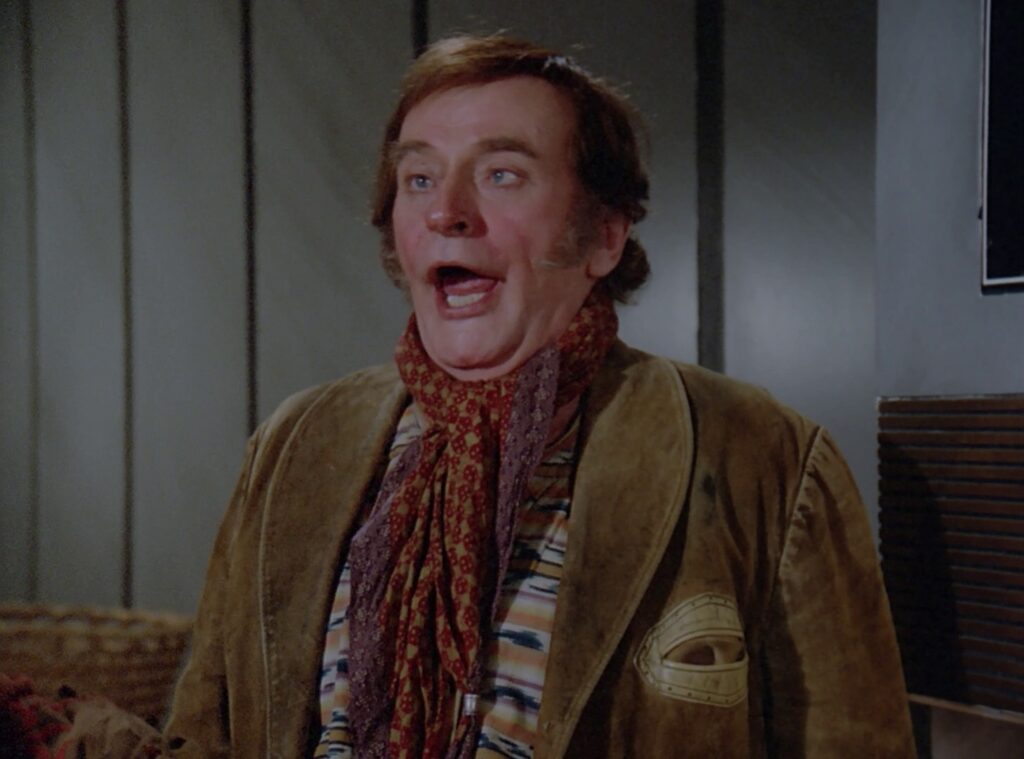
Next Generation‘s second season is, with a couple of notable exceptions, truly abysmal. Despite having a great cast, the show hadn’t really hit its stride yet, there was a bunch of weird conflict behind the scenes, and a Writer’s Guild strike meant that the producers were digging through the slush pile to buy time for scripts to be written once the show was in production. They even went as far as recycling a ten-year old script for the unproduced Star Trek: Phase II series for “The Child,” making an episode that already felt regressive by 1988 standards seem downright atrocious if you bother to revisit it.
“Up The Long Ladder,” however, is one of those that manages to miss the mark so badly that it winds up doing the opposite of what it’s attempting. Written by Melinda M. Snodgrass, who had delivered one of the all-time best episodes of the series only a few episodes earlier in the season with “Measure of a Man,” the episode was intended to be an allegory for the way a culture is enriched by diversity and immigration. According to an interview with Cinefantastique, she even slid some intentional and subtle pro-abortion messaging in there that was only really picked up on by the kind of anti-choice losers who get mad at Star Trek even when it doesn’t have subtle pro-abortion messaging.
And yet, the Space Irish: a bunch of wildly over-the top stereotypes that included a the colony’s leader (above) who preferred havin’ a wee nip of replicated Klingon whiskey to doin’ an honest day’s work, and his daughter, a fiery redheaded lass who only took time away from henpecking her lazy good-fer-nothin’ pa to try to get Commander Riker to impregnate her with as many space Irish babies as possible. Seriously, I heard Jonathan Swift watched this episode and thought that its treatment of the Irish was “a bit much.” It is full-blown bonkers and occasionally strays into jaw-dropping slapstick that I can’t believe was on TV in 1988. That’s a while back, sure, but buddy, it ain’t that long ago!
And yet, I kind of love it for just how goofy it gets while the rest of the cast is trying to do Serious Science Fiction in the middle of this vaudeville show. If you’ve been following my work for a while, that might come as a surprise. Not that I enjoy it, but that that’s the one I’d pick as my favorite bad episode, when there’s another one that comes to mind that I’ve talked about a whole lot more. There’s a reason that I didn’t go with it, though, and that’s because I’ve been thinking about it over the past few years, and come to the conclusion that it doesn’t really qualify.
And that, dear reader, brings us to the actual point of this entire lowercase enterprise, which is to tell you this:
“Sub Rosa” Is Good, Actually.
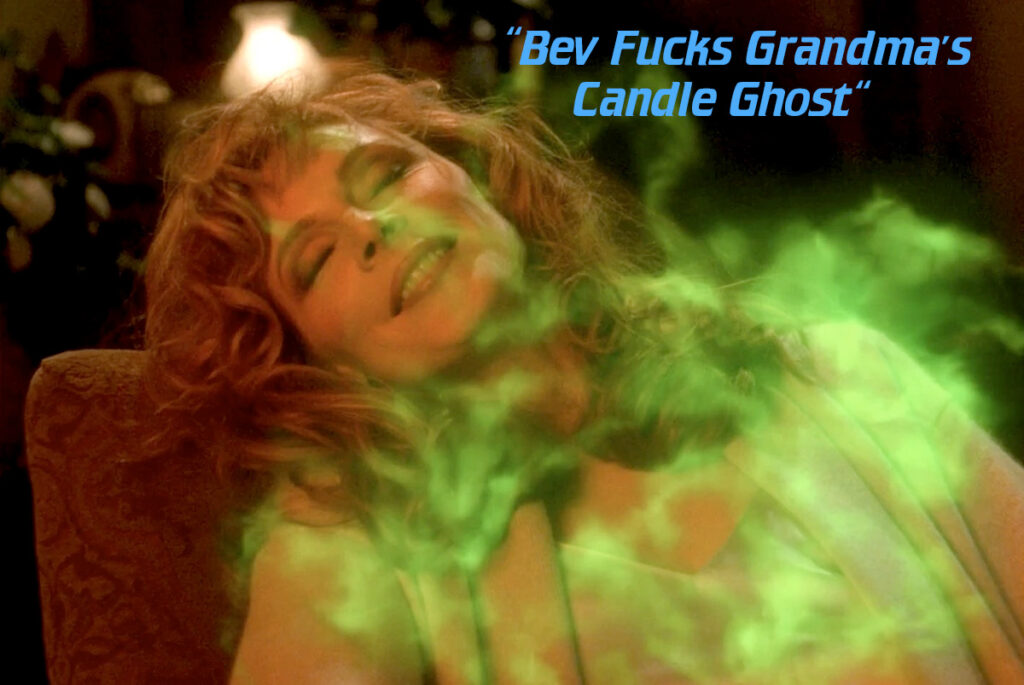
Season 7, Episode 14.
Yeah, I said it. The episode where Beverly Crusher goes to Planet Scotland and inherits a candle ghost that has been slamming her entire matrilineal family down big style for like six hundred years actually kind of owns. This is not code language; I am not joking. It’s not “so bad it’s good,” and while it’s not the same kind of good that we see in episodes like “Best of Both Worlds,” it’s also not the kind of enjoyably bad that we get from “Catspaw,” either. It’s actually just good.
For those of you who don’t know, here’s a brief summary of the episode: When her grandmother dies, Beverly Crusher (née Howard) attends her funeral on Caldos IV, a planet intentionally terraformed by colonists to resemble 19th century Scotland. While there, Bev inherits her grandmother’s house, which includes Nana Howard’s sex diary and a seemingly magic candle haunted by the ghost of a man named Ronin*, who explains that he has been straight up boning down with every female member of the Howard family since the 1800s, giving them bright green eyes and unnaturally long life. After getting fully turned on by reading her dead grandma’s handwritten porno about how she’s 100 years old and getting her warp core breached by a 30 year-old on the reg, Bev starts getting it on with Ronin* herself, which involves him turning into green smoke that she inhales until she has an orgasm. This is so addictive that she decides to resign her commission and move to Caldos IV in order to start her own private medical practice and get her back blown out by a ghost for the next 75 years, which for some reason is problematic for the volcels on the crew (Picard and Worf). Eventually Bev realizes that fucking your grandma’s candle ghost is, at the very least, kind of weird, and then she straight up fucking murders a 600 year-old sentient creature by vaporizing his corporeal phallus (the sex candle) with a future gun. Then she and Troi chat about it in the bar and Beverly says that doing a murder made her a little sad, because while he might’ve been a weird sex parasite, he was great at fucking Grandma, and that’s gotta count for something. Roll credits.
Nothing I have just written is exaggerated. These are the actual events of the show.
Having read that, you might wonder why I’m making the bold stance that it’s actually good, and considering that “Sub Rosa” often tops lists of the worst episodes of the show, the franchise, and/or the entire medium of television, I agree that it may require a bit of an explanation.
We really have to start by figuring out what makes an episode of Star Trek “bad,” and while it might sound counterintuitive, I don’t think it’s a simple matter of quality. There’s a difference between something being “bad” and something being “bad Star Trek,” you know? I feel that way about a lot of Discovery, a show that, completely apart from its actual quality, spends most of its five-year mission just kind of not being Star Trek. It’s a prestige TV show, with the same kind of prestige TV show opening sequence that every prestige TV show has where something artsy happens for like four minutes, full season-long arcs and Big Drama and Shocking Twists. None of that stuff fits into the mold of episodic, allegorical sci-fi that embraces its own goofiness that’s ultimately what Star Trek is to me, and what the current shows provide in Strange New Worlds, a series I love. But like, that’s fine; Disco has a lot going for it even if I don’t think it’s good Trek. Dragon Ball Z isn’t good Star Trek either, but it’s still great. Hell, the Magnum TA/Tully Blanchard steel cage “I Quit” match from Starrcade ’85 is probably the worst possible Star Trek there is, I like that thing so much I got a tattoo about it.
Point being, if we’re going to judge something as being “a bad episode of Star Trek,” then we have to at least partially consider how it functions as an episode of Star Trek in addition to anything else that might be going on. The question can’t just be “is it good,” but “is it Trek,” and buddy, let me tell you. “Sub Rosa” is in the running for being the MOST Star Trek it could possibly be.
Think about the common, recurring tropes that we see across multiple shows over the past six decades, the things that have all become shorthand for what the show is and what it does.
- The Enterprise encounters a planet with a bizarre resemblance to a specific moment in real-world Earth history? “A Piece of the Action.” “Bread and Circuses.” “Sub Rosa.”
- A mysterious figure that initially seems to be a supernatural creature but turns out to be some kind of non-corporeal life form? “Who Mourns for Adonias?” “Phantasms.” “Sub Rosa.”
- Someone gets laid like one time and then decides to forsake their entire life about it? “This Side of Paradise.” Odo’s whole arc in the back half of DS9. “Sub Rosa.“
- Weird dubcon sex stuff where you’re like “Man if someone was not turning into smoke or just touching fingers or whatever, this would never have aired on television.” A good 40% of the original series. Star Trek III :The Search For Spock. “SUB ROSA.”
Even someone walking in on Dr. Beverly Crusher while she’s having an orgasm due to some weird space nonsense isn’t new to this episode! IT HAPPENED IN SEASON FIVE!
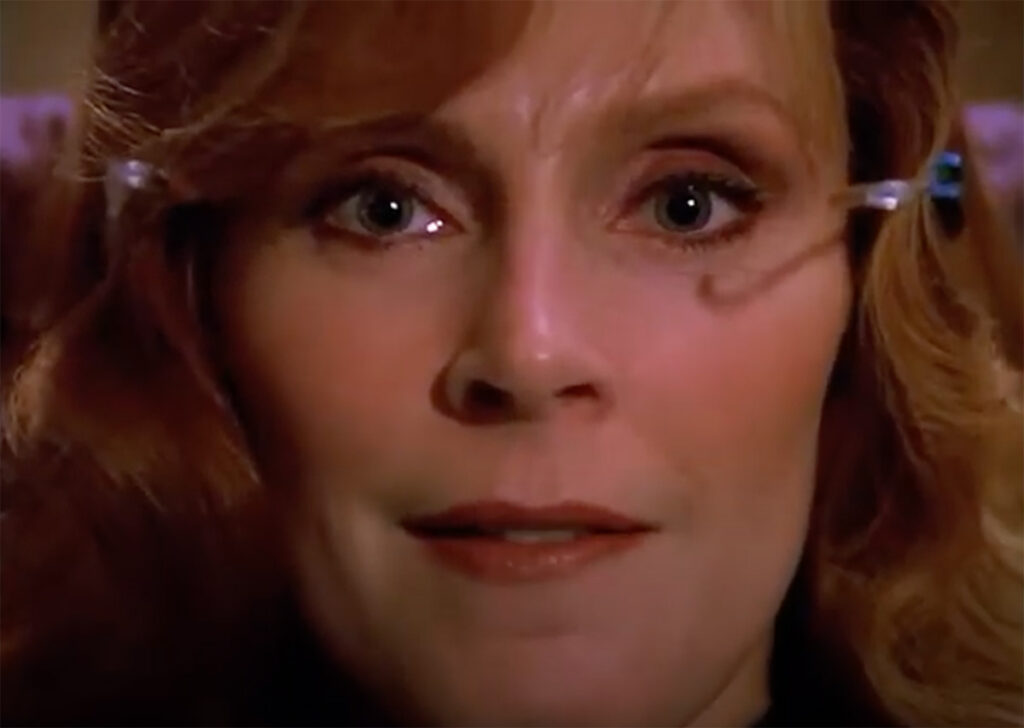
Everything that people point to as a reason why “Sub Rosa” is a weird, incongruous piece of Star Trek is, in fact, something that has precedence somewhere else in the series, and in many ways is way less weird than what happened before! Like, there’s a lot going on that’s not great with Ronin* having weird, gaseous dream sex with Beverly when she falls asleep after jackin’ it to her grandma’s horny memoir, but I assure you it’s no weirder than Saavik J-ing Spock’s hand O about five minutes after he comes back to life as a baby with no memories in Star Trek III, and we never say that’s the worst part of the franchise.
Even the larger strokes, so to speak, are directly descended from another one that’s in the running for Best Bad Episode, the original series’ “Wolf in the Fold.” That, if the title doesn’t ring a bell, is the one where Scotty is in an accident where he gets a concussion, and since the accident was “caused by a woman,” Kirk and Bones worry that it might’ve caused swelling in the part of the brain that produces misogyny. To head this off, they take Scotty to Planet Whitechapel and try to hook him up with an exotic dancer, but when they wander off into the streets, he’s possessed by the ghost of Jack the Ripper and murders her. Then it turns out that Jack the Ripper isn’t a ghost, but was an incorporeal life form who feeds on fear, and only murders women because “women feel fear more intensely than men.”
I cannot stress enough, this is not me editorializing. That is literally said in the episode and presented like it’s a scientific fact. Spock says it. It’s fuckin’ wild, folks.
So yeah, like, Ronin* sucks, but he’s not out here claiming that women are fundamentally more afraid of things than big strong men like Captain Kirk, and that’s something.
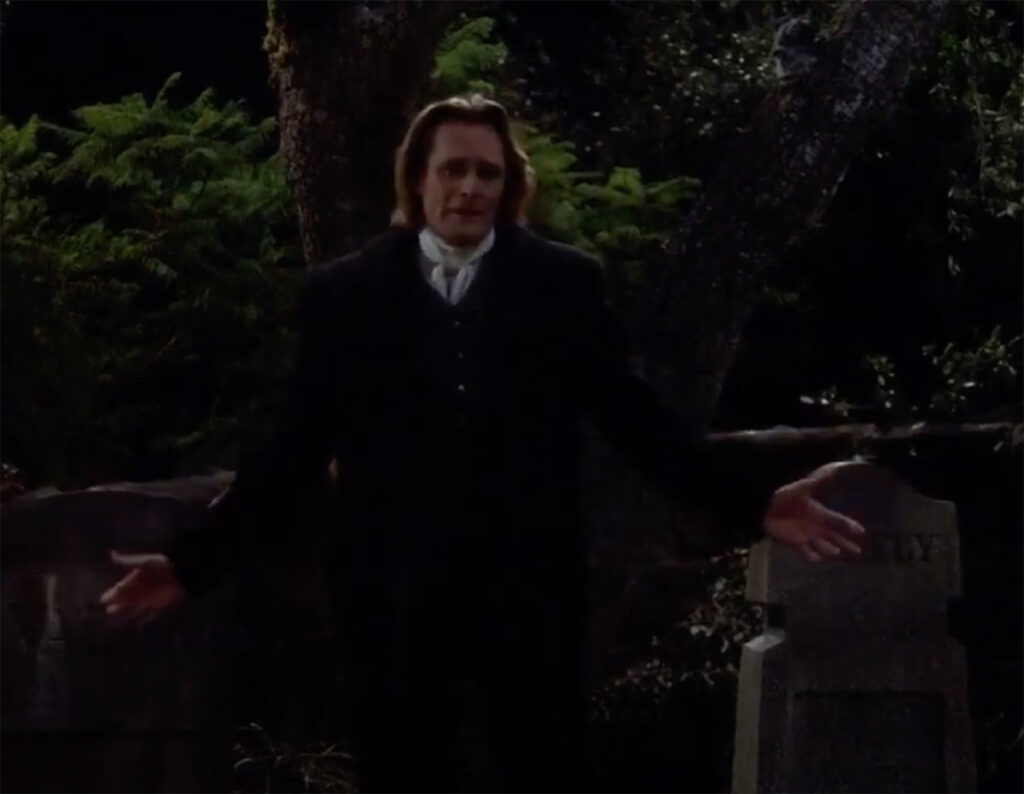
All the gothic romance trappings, the misty moors and moody fog — which appears on the bridge of the Enterprise because Ronin*’s sex gas also causes trouble with the weather control systems — is in that episode too, and recreating that in a different genre isn’t even unique to Trek. There’s an episode of G.I. Joe that does it, too, with Lady Jaye in a flimsy nightgown wandering around a Scottish castle holding a candelabra and being menaced by ghosts that turn out to be Destro and the giant pink Cthulhu monster he keeps in his basement.
Again: that’s a real episode. “Skeletons in the Closet,” Season 1, Episode 53. Doing “the Scottish Gothic Romance episode” wasn’t quite on the level of doing the Body Swap episode or the Trapped In An Elevator episode, but it was definitely in the rotation of go-to plots for a particular era of television.
More than that, though, there’s something else that I think is worth considering when it comes to evaluating “Sub Rosa”: Intent.
I know we’re all about death of the author and all that, and I’m certainly a proponent for judging the work itself and not ascribing motivations to the creators unless you know for a fact what they were going for, but I also think that intent can often be an important part of the creative process that’s worth discussing. Sometimes, it’s important to consider what a creator was trying to do when you’re taking a look at what they did. I’d even go so far as to say that it’s often what separates “so bad it’s good” from just plain bad. The Room, for instance, is an objectively and technically bad piece of art in terms of craft, but a lot of people derive enjoyment from it because it is, at the end of the day, a sincere attempt at storytelling that just goes off the rails in ways that you don’t often see. I’m not someone who believes in guilty pleasures — the original version of this essay started with that as its premise before I even got around to talking about Star Trek — but I’ll take a sincere failure over a cynical one pretty much any day of the week, if only because mistakes are much more interesting to me than the arrogance of not giving a fuck.
The flip side to that question is the one that usually comes up in comedy and genre fiction. I’ve said a million times that the best comics are good comics and the second best comics are dumb comics, but whether or not the creators know they’re doing something silly is often the only thing that separates dumb comics from bad ones. Like, Ultraman in Forever Evil gets his powers from crushing up Kryptonite and snorting it like cocaine. American Kaiju from U.S.Avengers is a guy named Todd Ziller who turns into a giant lizard monster with an American flag painted on his face. These are, on the surface, equally stupid ideas, but with one of them, I know the guy who came up with it thought it was hilarious, and with the other, it’s pretty much impossible to tell if it’s actually supposed to be cool. It’s only the intent behind those things that separate good from bad, and you can only really infer that from everything in the story surrounding it.
So that’s what we have to do with “Sub Rosa,” and when you put it in the larger context of Trek and all the bizarre ideas that make it what it is that I’ve already been through, I don’t think that’s particularly difficult.
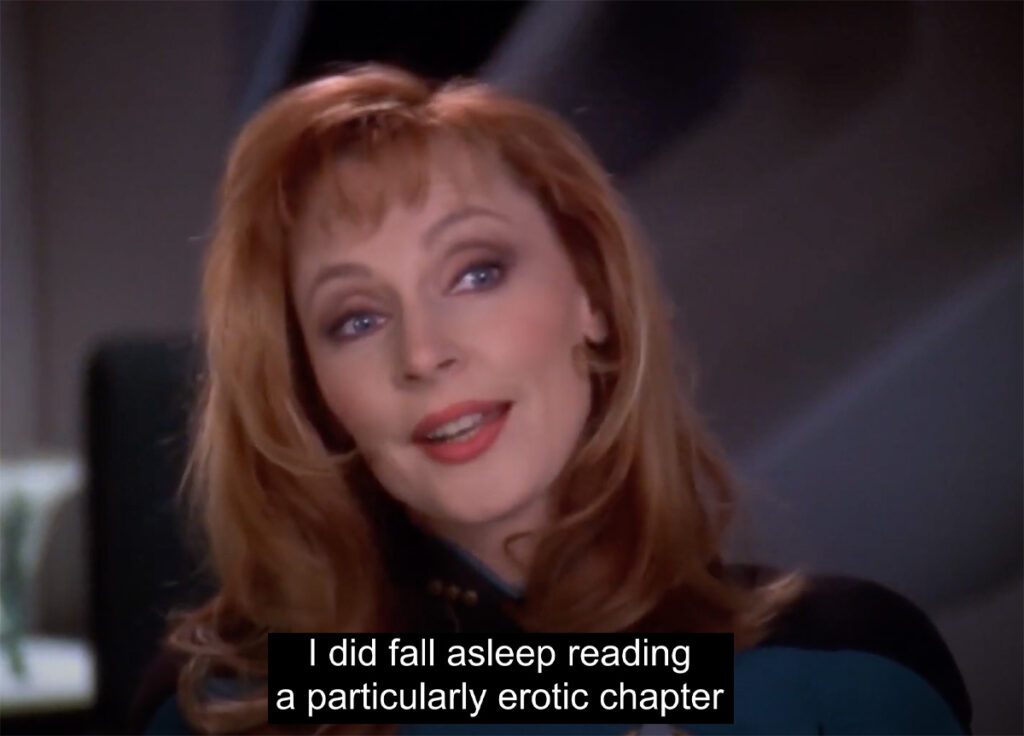
Sadly, story writer Jeri Taylor passed away last year, and while I looked around for screenwriter Brannon Braga’s contact information, I couldn’t find it. For some reason, this person who has been heavily involved with Star Trek for the past 40 years does not have his personal email address readily accessible to passionate fans who have some questions about his work that could really use some clearing up. Can’t imagine why. That does mean, though, that I could not confirm what his mental state was when writing what might be the most infamous line of the entire seven-year run of the show, but like… come on, dude. This episode was directed by Jonathan Frakes. You’re gonna sit there and tell me that Two-Takes Frakes, Commander William T. Riker himself, didn’t know what he was doing here? You’re going to sit there and tell me that it is somehow not literally and mathematically impossible that a writer, story editor, script supervisor, director, actor, producer, and however many other people work on a television show could all film a scene where a character says the phrase “I did fall asleep reading a particularly erotic chapter of my grandmother’s journal last night” and NONE of them knew that shit was fucking hilarious? Come on. Grow up, dude. Be serious, please.
“Sub Rosa” rules. Y’all just weren’t ready for it.